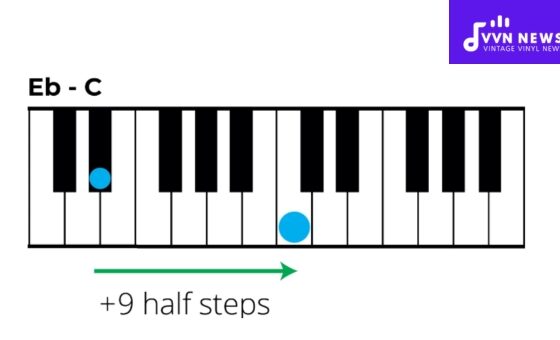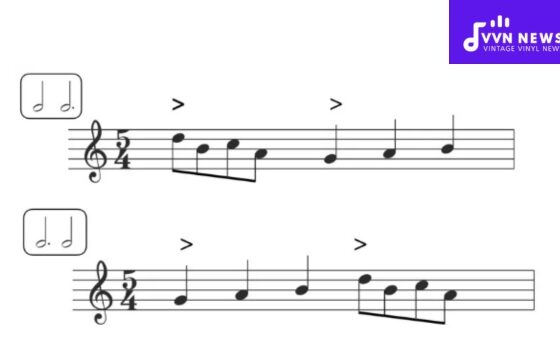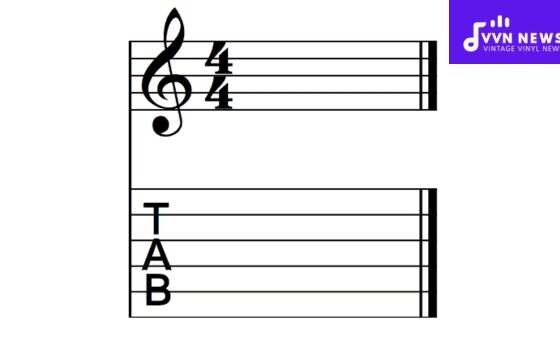Music has a powerful impact on our emotions and can be incredibly beneficial for our mental health.
Many of us turn to music as a form of therapy, whether it’s to lift our spirits, calm our minds, or escape from the stresses of daily life.
In this blog post, we will explore how to use music to help improve your mental health.
So, if you’ve ever wondered how music can be utilized as a tool for well-being, keep reading to discover some practical tips and strategies.
When it comes to finding solace and comfort in music, the possibilities are endless.
Whether you’re listening to your favorite upbeat tunes or immersing yourself in a soothing melody, music can transport us to different emotional states.
But how exactly can we fully harness the benefits that music has to offer for our mental well-being? How To Use Music To Help Your Mental Health?
I will share some valuable insights on incorporating music into your daily routine as a means of enhancing your emotional and psychological state.
So, let’s uncover the transformative power of music together and explore some practical ways you can integrate it into your life for better mental health.
How To Use Music To Help Your Mental Health
Music has the incredible power to heal, soothe, and uplift our spirits. It can be a powerful tool for improving our mental health and overall well-being.
Whether you’re feeling stressed, anxious, or need an emotional boost, music can be your trusted companion.
I will share some valuable insights on using music as a means of enhancing your mental health and offer practical tips on incorporating it into your daily routine.
Reduces stress and anxiety.

In today’s fast-paced world, stress and anxiety have become common issues that many of us face daily.
The good news is that music can be a powerful tool in managing and reducing these feelings.
When we listen to soothing music, our bodies respond by releasing hormones like serotonin and dopamine, which help to promote relaxation and reduce stress.
Slow-tempo music with a steady rhythm, such as classical or instrumental tracks, has been found to be particularly effective in calming the mind and body.
To use music to reduce stress and anxiety, try creating a playlist of your favorite calming songs.
Set aside some time each day to sit or lie down in a quiet space and listen to the music.
Focus on your breath as you allow the soothing sounds to wash over you, letting go of any tension or worries.
You can also practice deep breathing or gentle stretches while listening to the music for added relaxation benefits.
Also Read: The Healing Benefits Of Solfeggio Frequency 528Hz [2025 Guide]
Enhances mood and emotional well-being.
Have you ever noticed how listening to an upbeat song instantly lifts your spirits? Music has the incredible ability to influence our mood by triggering emotional responses within us.
When we listen to happy or uplifting songs, our brains release feel-good neurotransmitters like endorphins, dopamine, and oxytocin, which enhance our overall well-being.
If you’re feeling down or need a mood boost, compile a playlist of songs that make you feel happy or energized.
Allow yourself to fully immerse in the music by singing along or dancing if you feel inclined.
Use music as a soundtrack for your daily activities – pop it on while getting ready in the morning or during your workout routine for an instant mood transformation.
Provides an outlet for self-expression.

Sometimes, words are not enough to express how we feel deep inside. Music provides a unique outlet for self-expression where we can convey emotions that are difficult to put into words.
Whether it’s through playing an instrument, singing, or writing lyrics, engaging in music allows us to communicate and process our innermost thoughts and feelings.
If you’re interested in exploring music as a form of self-expression, consider learning to play an instrument or taking up singing lessons.
Engage in songwriting or composing your own music as a way to channel your emotions creatively.
You don’t have to be a professional musician; the act of expressing yourself through music can be cathartic and therapeutic in itself.
Improves concentration and focus.
We’ve all experienced moments when our mind feels scattered, making it challenging to concentrate on the tasks at hand.
In such situations, music can be a valuable tool to help improve concentration and focus.
Ambient or instrumental music without lyrics is particularly helpful in providing a soothing background sound that doesn’t distract or interrupt cognitive processes.
To use music for improved concentration, experiment with different genres and styles to find what works best for you. Some individuals find classical or instrumental tracks helpful, while others may prefer ambient electronic music or nature sounds.
Create a playlist of these focused-inducing tunes and play them softly in the background while working, studying, or engaging in any mentally demanding tasks.
Also Read: How To Manage Stress and Overcome Stage Fright?
Boosts creativity.

Whether you’re an artist, writer, or simply looking for innovative solutions to everyday problems, music can boost your creativity.
Research has shown that listening to certain types of music can stimulate brain regions associated with divergent thinking and creative problem-solving.
This means that by incorporating music into your creative process, you may unlock new ideas and perspectives.
To tap into your creative flow with music, experiment with different genres and styles that resonate with you.
Ambient electronic tracks with repetitive beats or instrumental compositions are often conducive to enhancing creativity for many people.
Create a playlist of inspiring songs or soundscapes that stimulate your imagination and play it during brainstorming sessions or whenever you need a creative boost.
How To Use Music To Help Your Mental Health
Relieves symptoms of depression
Music has the incredible ability to alleviate symptoms of depression by providing a source of comfort and emotional release.
When one is struggling with depression, it can feel as if there is a constant weight on their shoulders.
Music has the power to uplift our spirits and provide a much-needed escape from negative thoughts and emotions.
Listening to music that resonates with you on an emotional level can help create a sense of validation, understanding, and connection.
It serves as a form of catharsis, allowing you to express and release pent-up emotions that may be contributing to feelings of sadness or lethargy.
By engaging with music that reflects your emotions and experiences, you may find solace in knowing that others have also gone through similar struggles.
Music can trigger the release of dopamine – the “feel-good” hormone – in your brain.
This surge of dopamine can help elevate your mood and provide temporary relief from symptoms of depression.
Promotes relaxation and calmness
In a fast-paced world filled with constant stimulation, finding moments of relaxation and calmness is crucial for our mental well-being. Music can serve as a powerful tool in achieving this state of tranquility.
Slow-paced melodies with soothing instrumentation or ambient sounds have been proven effective in inducing relaxation responses within the body.
When we are exposed to calming music, our heart rate slows down, blood pressure decreases, breathing becomes deeper and more measured, and muscle tension relaxes. As a result, we experience an overall sense of calmness and serenity.
Consider setting aside dedicated time each day to listen to relaxing music as part of your self-care routine.
Whether it’s through meditation or simply lying down with closed eyes while focusing on the melody, allow yourself to immerse yourself fully in the soothing soundscape created by the music.
Also Read: 10 Tips On How To Teach Music Theory? [Educator’s Guide]
It helps manage pain and discomfort
Music has long been used as a tool to alleviate pain and discomfort, whether physical or emotional.
It can serve as a distraction from the sensations of pain, making it easier for individuals to cope with discomfort during medical procedures or chronic conditions.
Listening to music activates different parts of the brain, which can reduce the perception of pain.
For those experiencing chronic pain, incorporating music into their daily routine can provide a welcome respite. They are engaging with music that you enjoy releases endorphins, which are natural painkillers produced by the body. This natural release of endorphins can help reduce feelings of pain and promote a greater sense of well-being.
Experiment with different genres and tempos to find what works best for you in managing your specific type of pain or discomfort. Whether it’s classical music, calming instrumentals, or even upbeat tunes that boost your mood and distract from the sensations, tailoring your playlist to your needs can make a significant difference in managing your pain.
Fosters a sense of community and belonging
Music has an innate ability to bring people together and foster a sense of community and belonging. From attending concerts and music festivals to participating in choirs or bands, engaging in musical activities creates opportunities for connection with others who share similar interests.
When we engage with music collectively, such as singing in harmony or dancing together at an event, it creates a shared experience that unifies us. This sense of connection can be especially beneficial for our mental health, as it combats feelings of isolation and loneliness.
Consider joining local music groups or communities where you can connect with others who have similar musical tastes or interests. Engaging in group activities centered around music not only provides an avenue for self-expression but also offers an opportunity to build meaningful relationships based on shared passion.
Enhances cognitive function and memory
Listening to music has shown promising effects on enhancing cognitive function and memory.
Research suggests that certain types of music, particularly classical compositions, can stimulate brain activity and improve cognitive performance.
Music is believed to engage the parts of the brain responsible for memory, attention, and problem-solving.
In addition to listening to music, learning to play an instrument can also provide significant cognitive benefits.
It requires coordination, concentration, and focus, all of which contribute to improved cognitive function.
Engaging in music-making activities has been linked to enhanced memory recall and faster information processing.
Consider incorporating instrumental music into your study or work routine as a way to boost productivity and focus.
Experimenting with different types of instrumental music such as classical piano or ambient electronic can help determine what type of music enhances your cognitive abilities the most.
Challenging yourself to learn an instrument or taking up singing lessons can provide long-term benefits for your cognitive function and memory retention.
Also Read: How To Transpose Up An Octave [Maximize Your Music Skills]
Reduces symptoms of insomnia
Insomnia can have a significant impact on your mental and physical well-being. Lack of sleep can lead to increased stress, anxiety, and irritability. Thankfully, music can be a powerful tool to help ease the symptoms of insomnia and promote better sleep.
Music has a direct effect on the autonomic nervous system, influencing heart rate, blood pressure, and breathing patterns.
Slow-tempo music with soothing melodies can help slow down your heart rate and relax your muscles, making it easier to fall asleep.
To enhance its effectiveness, create a relaxing bedtime routine that incorporates music. Set aside some time each night before bed to listen to calming songs or instrumental music.
Dim the lights, turn off electronic devices, and create a peaceful environment conducive to relaxation.
Experiment with different genres and styles of music until you find what resonates with you personally. Some people find classical music or ambient sounds like waves or rainstorms particularly soothing for sleep.
Consider creating a playlist specifically for sleep that you can play consistently each night. This will signal to your brain that it’s time to wind down and prepare for restful sleep.
Supports emotional catharsis
Music has the power to evoke strong emotions within us – joy, sadness, nostalgia, or even anger. It serves as an outlet for emotional catharsis by allowing us to express our feelings in a safe and constructive manner.
When we listen to music that aligns with our emotions or experiences, it can provide validation and comfort. If you’re feeling sad or overwhelmed by certain emotions, listening to melancholic or introspective songs can help you process those feelings.
On the other hand, energetic or uplifting music can boost your mood when you’re feeling down or unmotivated. It can give you the much-needed energy and inspiration to overcome negative emotions.
Creating personalized playlists that represent different emotional states is an effective way to utilize music for emotional catharsis.
Having specific playlists for sad moments, happy times, or even anger can provide an outlet for your emotions and allow you to feel and release them truly.
Encourages mindfulness and meditation
Mindfulness and meditation have significant benefits for mental health, promoting relaxation, reducing stress, and improving well-being. Music can enhance these practices by providing a focal point and guiding us into a meditative state.
Choose slow-tempo instrumental music or nature sounds that are free from lyrics or distracting melodies. The goal is to allow the music to become a background element that helps quiet the mind and deepen your meditation practice.
As you engage in mindfulness or meditation, focus on the nuances of the music – the rhythm, texture, and harmonies. Let the melodies wash over you, aiding in relaxation and helping you stay present in the moment.
Using music as a tool during mindfulness exercises can make it easier to maintain focus and extend your practice. It’s a valuable resource for those who find it challenging to quiet their thoughts during meditation alone.
Also Read: How To Transpose Down An Octave [Master This Musical Skill]
Alleviates symptoms of post-traumatic stress disorder (PTSD)
Post-traumatic stress disorder (PTSD) can cause distressing symptoms such as anxiety, hypervigilance, nightmares, and intrusive memories. Music therapy has been shown to be an effective complementary treatment for those with PTSD.
Listening to carefully selected music can help individuals process traumatic experiences by providing a safe space for expression. It allows them to connect with their emotions without feeling overwhelmed or retraumatized.
Slow-tempo or calming music has a soothing effect on the nervous system which helps reduce anxiety levels associated with PTSD. Listening to familiar songs that evoke positive memories can also provide comfort and stability.
Music therapy sessions led by trained professionals can be particularly beneficial for individuals with PTSD as they provide a structured environment to explore emotions through music.
Integrating therapeutic playlists into daily life can also be a helpful practice.
Improves overall mental resilience
Music can contribute to building mental resilience by fostering a positive mindset, promoting self-reflection, and offering an outlet for emotional release. When faced with challenges, incorporating music into your routine can help you stay focused and motivated.
Engaging in high-energy music before a demanding task or physical exercise can boost your energy levels and improve performance. It serves as a form of motivation that pushes you to overcome obstacles and keep moving forward.
In times of stress or emotional turmoil, listening to calming music or engaging in musical activities like singing or playing an instrument can provide a sense of solace and inner peace.
It allows you to take a break from the chaos of everyday life and recharge your mental batteries.
To make the most of music’s impact on mental resilience, create personalized playlists that encompass different moods and emotions.
Curate songs that inspire you, lift your spirits, and remind you of your strengths and capabilities.
Also Read: How To Transpose Into The Tenor Clef? [Mastering In Notation]
FAQs about Using Music to Improve Mental Health
What type of music is best for reducing stress and anxiety?
Different individuals respond to different types of music, but generally, slow-tempo instrumental music or genres like classical, ambient, or natural sounds can help create a calming and relaxing environment.
How can music improve concentration and focus?
Music can act as a background stimulant that helps drown out distractions and promotes a state of flow. Opting for instrumental music without lyrics or familiar songs that won’t divert your attention is most effective.
Can listening to music really help with symptoms of depression?
Yes, music has been found to have a positive impact on mood and can provide emotional support. Choose uplifting or soothing songs that resonate with you personally to help improve symptoms associated with depression.
Is it necessary to play an instrument to benefit from music therapy?
Not at all! Simply listening to your favorite tunes or engaging in active listening exercises can be just as beneficial. However, if playing an instrument interests you, it can provide an additional outlet for self-expression and creativity.
How often should I incorporate music into my routine for optimal mental health benefits?
Ideally, incorporating even just a few minutes of intentional listening each day can make a difference. Experiment with different times throughout the day based on your preferences – whether it’s starting your morning with uplifting tunes or winding down in the evening with soothing melodies.
Conclusion
Music has the incredible power to impact our mental health positively. By incorporating music into our daily routines, we can reduce stress and anxiety, enhance mood and emotional well-being, improve concentration and focus, boost creativity, and promote relaxation.
Whether you’re listening to your favorite tunes or exploring new genres, the therapeutic benefits of music are undeniable.
So don’t hesitate to turn up the volume, let the melodies guide you, and experience the transformative effects of music on your mental well-being.








